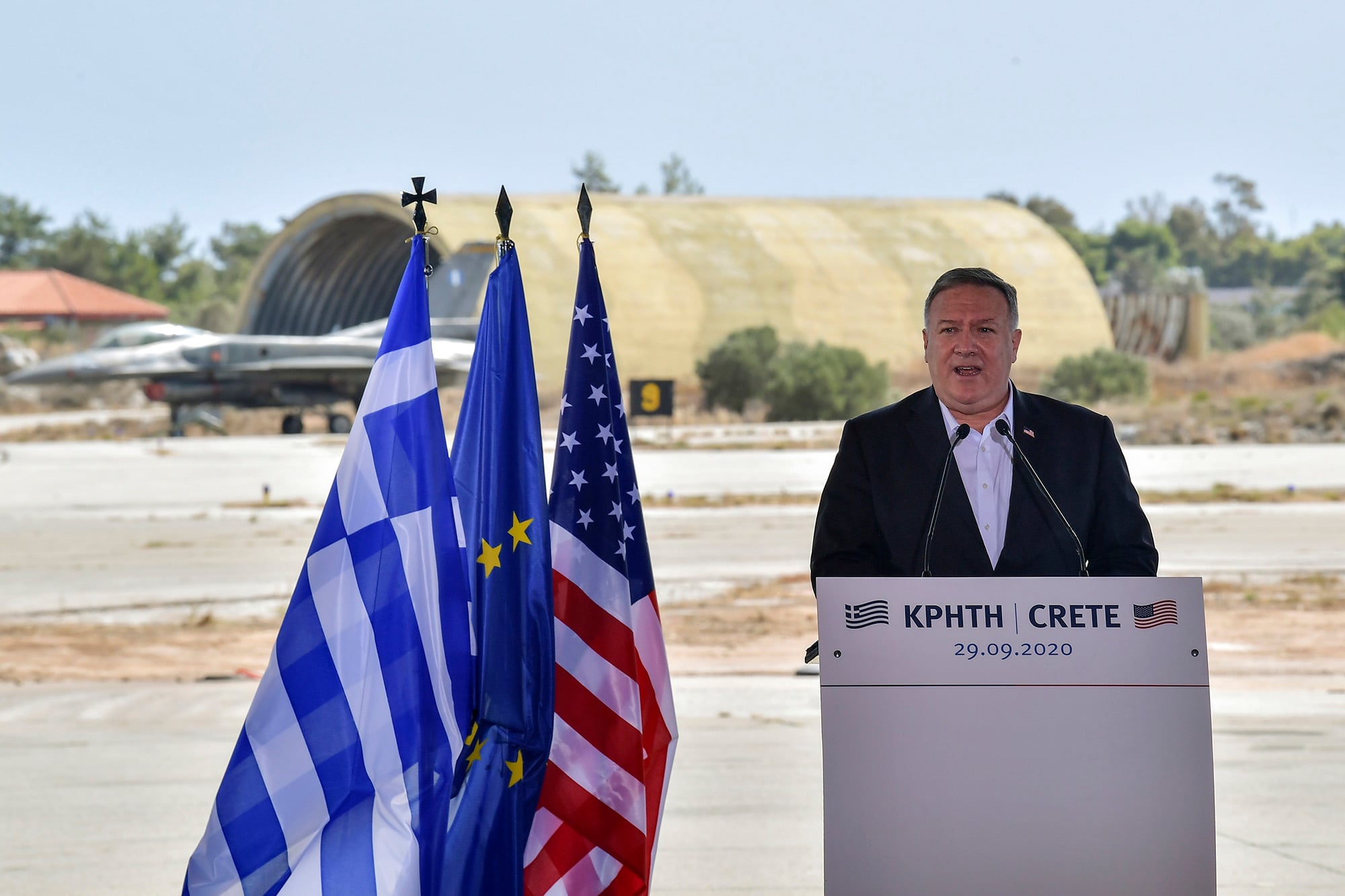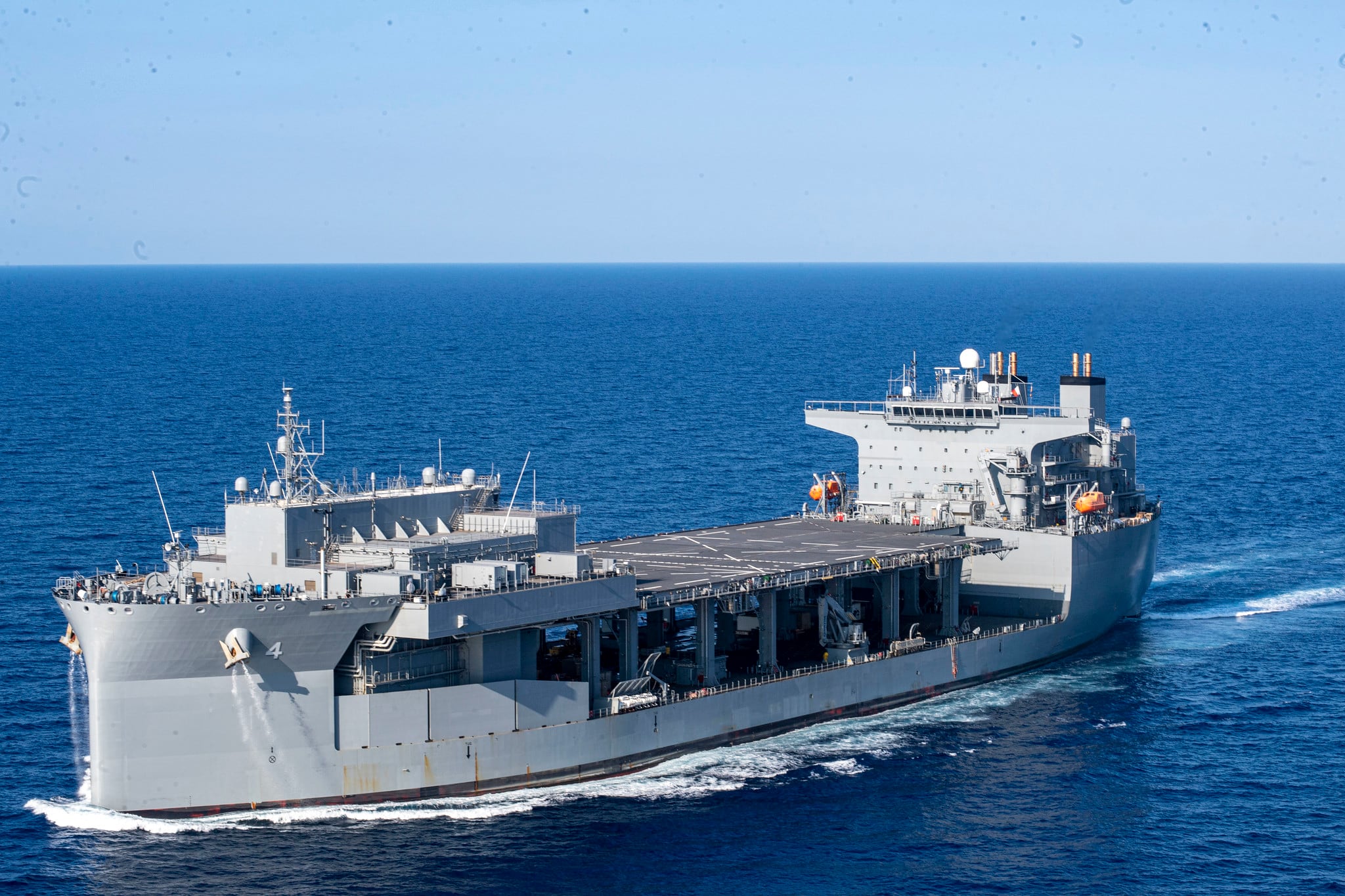ATHENS, Greece — U.S. Secretary of State Mike Pompeo expressed support Tuesday for talks between Greece and Turkey, NATO allies whose relations deteriorated to the point where both had warships facing off in the Mediterranean Sea.
His comments, however, angered Ankara, where a senior official accused Pompeo of not being impartial on the second day of a five-day regional tour.
Speaking from the Souda Bay military base on the Greek island of Crete, Pompeo said relations between the United States and Greece are “at an all-time high and getting stronger.”
Greece has been looking to the U.S. and the European Union for support in its dispute with neighboring Turkey, which it accuses of encroaching on its sovereign rights in the eastern Mediterranean. EU leaders are set to discuss this week potential sanctions against Turkey, which is not a bloc member.
Turkey last month sent a research vessel, accompanied by warships, to prospect for energy resources in an area where Greece claims exclusive rights. Athens also sent warships to the area and put its armed forces on alert. The dispute led to fears of open conflict.
The tensions at sea eased recently, with Athens and Ankara announcing they would hold exploratory talks on relaunching stalled negotiations. Technical discussions on a military level also took place at NATO to prevent a military accident.
In Turkey, a senior ruling party official said Pompeo had “lost his impartiality” in the dispute by visiting Greece two times in a month and ignoring Turkish Cypriots during a visit to Cyprus.
“You cannot serve peace in the region by visiting only the Greek side on the island (of Cyprus), by paying two visits to Greece, and by making one-sided statements of support,” Omer Celik, the spokesman for President Recep Tayyip Erdogan’s ruling party, told reporters. “We believe that there is a need for a return to a balanced policy.”
Amid the tensions with Turkey, Greece has announced major arms purchases, including fighter jets from France, as well as warships, helicopters and weapons systems.
“I was pleased to see that Mr. Pompeo shares our positions, understanding that tension between two members of NATO ultimately is not in anyone’s interest,” Greek Prime Minister Kyriakos Mitsotakis said after talks with Pompeo.
After taking a step back in regional issues, the U.S. began to become more involved in the Mediterranean in 2018, said Michael Tanchum at the Austrian Institute for European and Security Policy.
“The U.S. was proceeding cautiously, balancing interests in various areas of the region ranging from Syria, Cyprus to Libya,” Tanchum said. “(But) events in the eastern Mediterranean are forcing Washington to accelerate the pace at which it deepens its involvement.”

Pompeo visited Athens last October and signed an agreement with Greece that provided for increasing joint U.S.-Greece and NATO activity at three locations in Greece, as well as infrastructure and other improvements at Souda Bay.
Pompeo and Mitsotakis announced Tuesday that the USS Hershel “Woody” Williams, the second of a new class of sea-basing ships, will be based out of Souda Bay.
“It’s literally the perfect choice in light of the facility’s strategic location. And it’s symbolic of a defense partnership that will continue to expand and to grow,” Pompeo said.
RELATED

Pompeo said security cooperation with Greece “is especially important as Russia continues to destabilize the region, especially in Libya.”
He said he and Mitsotakis “also agreed to explore closer cooperation to overcome challenges that Russia poses.” He referred to “malign influence” such as spreading disinformation on the coronavirus pandemic and trying to involve the Orthodox Church.
Pompeo’s five-day tour also will include visits to Italy, the Vatican and Croatia.
Suzan Fraser in Ankara contributed to this report.
